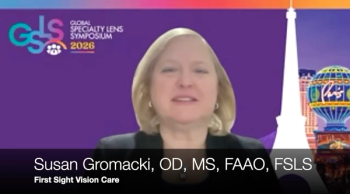
Google’s 10 tips to perfect your practice website
In the digital age, having a website can mean the difference between failure and success, but having a website means little if a practice's target audience doesn't see it
Las Vegas-In the digital age, having a website can mean the difference between failure and success, but having a website means little if a practice's target audience doesn't see it. Because Google is the dominant search engine of choice worldwide, it's natural that eyecare practitioners should be aware of best practices for ensuring their website is both ranked highly on Google search results and provides visitors with a good experience.
Related:
What you need to know
To help practitioners get the most out of their websites, Google's Eric Kuan and Adam Ziegler offer the following tips:
1. How search results are created
Search results are based on a myriad of algorithms that find, index, and evaluate more than 60 trillion Internet pages.
2. Offer what users want
The key to high placement on organic Google search results is having a website that users want to visit. Providing content that's informative, includes appropriate calls to action, and avoids keyword spamming will all factor into how valuable that content is.
More practice management:
3. Get those links
Additionally, pages are given rankings, which-among other things-are determined by how many links go to that page from outside sources. The idea is: the more sites that link to a page, the more relevant that page must be.
4. Establish a Google+ My Business page
Physical locations benefit greatly from localized results. By establishing a Google+ My Business profile, practices can be included in map results that show where local businesses are located.
More tech:
5. Understand good marketing
A good marketing page follows the marketing funnel:
• Attract visitors with effective keywords
• Engage users with value-adding content
• Provide calls to action to complete, such as "Call us today"
• Ensure those actions result in conversions, such as an e-commerce platform or a phone number visitors can call
6. Use keywords-but don't try to game the system
Keywords should be chosen based on relevance to the page, though keyword "stuffing," or the practice of inserting extra instances of keywords at the bottom of a page merely to manipulate search results, is not only ill-advised, but can also be punished by Google's algorithms.
7. Google understands synonyms
Google understands keyword synonyms, so a search for "lens frames" will still find sites that have only "glasses" as a keyword.
More tech:
8. Google offers sponsored advertising
In contrast to organic results, Google also provides opportunities for sponsored advertising, known as Google AdWords. These are paid advertisements that show up on the top part of each page of search results.
9. Not everyone wants big chains
While large, national chains may have the budgets necessary to squeeze individual practices out of contention for the top sponsored positions, the fact is that many people specifically seek out local stores. "Around 50 percent of users entering queries on mobile devices have local intent," Kuan says.
10. Protecting advertisers
There are systems in place that protect advertisers from fraudulent clicking. Should someone click on an ad multiple times with the intent of depleting an ad campaign's budget, Google's algorithms detect it and remove the costs.
More resources
These tips, while helpful, are not comprehensive. Kuan and Ziegler recommend that eyecare practitioners seek out more information at
Newsletter
Want more insights like this? Subscribe to Optometry Times and get clinical pearls and practice tips delivered straight to your inbox.















































